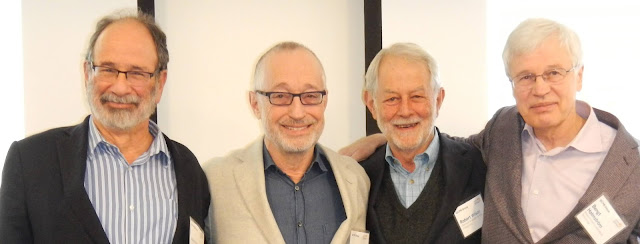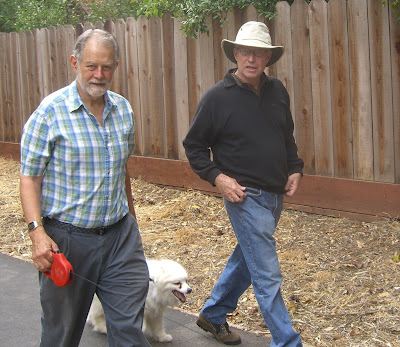From the Guardian:
'Landmark moment': 156 countries agree to Covid vaccine allocation deal--Covax plan will counter rising threat of ‘vaccine nationalism’, prioritising vulnerable healthcare systems and frontline workers by Peter Beaumont
"A coalition of 156 countries has agreed a “landmark” deal to enable the rapid and equitable global distribution of any new coronavirus vaccines to 3% of participating countries’ populations, to protect vulnerable healthcare systems, frontline health workers and those in social care settings.
"The Covid-19 vaccine allocation plan – co-led by the World Health Organization and known as Covax – has been set up to ensure that the research, purchase and distribution of any new vaccine is shared equally between the world’s richest countries and those in the developing world.
"Sixty-four higher income economies have already joined Covax, which includes commitments from 35 economies as well as the European commission, which will procure doses on behalf of the 27 EU member states plus Norway and Iceland, with 38 more expected to join in the coming days.
...
"Recognising that the first useful vaccines to emerge may be in short supply, approved vaccines will initially be made available to a tightly targeted 3% of the population of participating countries, building over time to 20% of each country’s most vulnerable population.
...
"According to a document detailing the arrangement, under the scheme “all countries should gradually receive tranches [of vaccine] to cover each subset of their [initial] target groups … until they can cover 3% of the population”.
The document continues: “At this point of the pandemic, a reasonable scenario would be that, while the supply of Covid-19 vaccines remains very scarce, countries should focus initially on reducing mortality and protecting the health system.
“This … would enable, for example, the vaccination of frontline workers in health and social care settings in most countries … Additional tranches will follow gradually as more supply becomes available.”
**************
And this from the Washington Post:
World Health Organization unveils plan for distributing coronavirus vaccine, urges cooperation By Emily Rauhala
"Under the plan, rich and poor countries pool money to provide manufacturers with volume guarantees for a slate of vaccine candidates. The idea is to discourage hoarding and focus on vaccinating high-risk people in every participating country first.
"So far, 64 higher-income countries have signed up, WHO officials said, but they added that 38 more are expected to do so in the coming days. Notably missing: Russia, China and the United States.
"China has not made an ann"ouncement either way. The White House said this month that the United States would not join, in part because the administration doesn’t want to work with the WHO, and will instead take a go-it-alone approach.
...
"The framework makes clear that each participating country can decide whom to vaccinate first, but it is based on the idea that doses for 3 percent of a country’s population could be used to vaccinate medical workers first and then other high-risk groups.
...
"“It seems like a compromise position,” said Thomas J. Bollyky, a senior fellow at the Council on Foreign Relations and the director of its global health program. “It’s not exactly what you would do if you were driven strictly by public health.”
"In a policy report this month for the journal Science, critics offered an alternate framework called the Fair Priority Model, which is critical of the country-based approach"
************
Here's the Science article:
An ethical framework for global vaccine allocation, by Ezekiel J. Emanuel1, Govind Persad2, Adam Kern3, Allen Buchanan4, Cécile Fabre5, Daniel Halliday6, Joseph Heath7, Lisa Herzog8, R. J. Leland9, Ephrem T. Lemango10, Florencia Luna11, Matthew S. McCoy1, Ole F. Norheim12, Trygve Ottersen13, G. Owen Schaefer14, Kok-Chor Tan15, Christopher Heath Wellman16, Jonathan Wolff17, Henry S. Richardson18
"The Fair Priority Model is primarily addressed to three groups. One is the COVAX facility—led by Gavi, the World Health Organization (WHO), and the Coalition for Epidemic Preparedness Innovations (CEPI)—which intends to purchase vaccines for fair distribution across countries (5). A second group is vaccine producers. Thankfully, many producers have publicly committed to a “broad and equitable” international distribution of vaccine (2). The last group is national governments, some of whom have also publicly committed to a fair distribution (1).
...
"The Fair Priority Model proceeds in three phases, preventing more urgent harms earlier (see the Table). Phase 1 aims at reducing premature deaths and other irreversible direct and indirect health impacts. Phase 2 continues to address enduring health harms but additionally aims at reducing serious economic and social deprivations such as the closure of nonessential businesses and schools. Restoring these activities will lower unemployment, reduce poverty, and improve health. Finally, phase 3 aims at reducing community transmission, which in turn reduces spread among countries and permits the restoration of prepandemic freedoms and economic and social activities."






